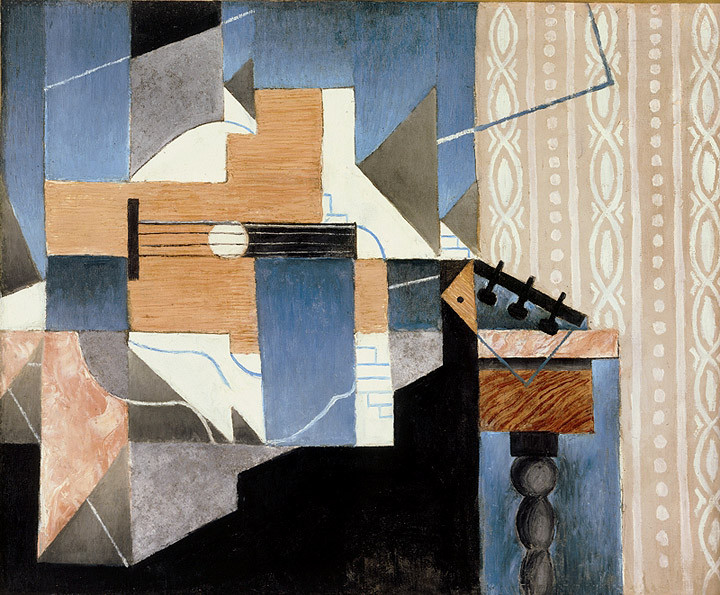Telefónica’s Cubism Collection
11 May - 22 Oct 2012
TELEFÓNICA’S CUBISM COLLECTION
The exhibition underscores the relevance of Juan Gris, his condition as the head of the cubist school until 1927, and the impact of the cubist movement on the ascent of modernism in Latin American art.
The artist is presented in all the diversity and complexity of his career, of his work with systems of diverse proportions and textures following his invention of plastic rhymes. Juan Gris is also the leading exponent of the new form of Cubism that emerged between 1916 and 1923.
Juan Gris and Cubism were instrumental in the transformation of Latin American modern art, and the exhibition highlights the implicit or explicit connections between Juan Gris and Emilio Pettoruti, Xul Solar, Rafael Barradas, Joaquín Torres-García and Vicente do Rego Monteiro. This connection would subsequently reach —with Juan Gris and Cubism remaining as points of reference—other regions and cultural milieus through the works of Daniel Vázquez Díaz, Manuel Ángeles Ortiz, Louis Marcoussis and Georges Valmier, striking up a dialogue with the photographs of Horacio Coppola and Martín Chambi. Against this backdrop of elements and protagonists, Cubism is revealed as a versatile, complex proposal capable of uniting and transcending times, spaces and inter-continental distances in a single sequence.
The exhibition underscores the relevance of Juan Gris, his condition as the head of the cubist school until 1927, and the impact of the cubist movement on the ascent of modernism in Latin American art.
The artist is presented in all the diversity and complexity of his career, of his work with systems of diverse proportions and textures following his invention of plastic rhymes. Juan Gris is also the leading exponent of the new form of Cubism that emerged between 1916 and 1923.
Juan Gris and Cubism were instrumental in the transformation of Latin American modern art, and the exhibition highlights the implicit or explicit connections between Juan Gris and Emilio Pettoruti, Xul Solar, Rafael Barradas, Joaquín Torres-García and Vicente do Rego Monteiro. This connection would subsequently reach —with Juan Gris and Cubism remaining as points of reference—other regions and cultural milieus through the works of Daniel Vázquez Díaz, Manuel Ángeles Ortiz, Louis Marcoussis and Georges Valmier, striking up a dialogue with the photographs of Horacio Coppola and Martín Chambi. Against this backdrop of elements and protagonists, Cubism is revealed as a versatile, complex proposal capable of uniting and transcending times, spaces and inter-continental distances in a single sequence.

